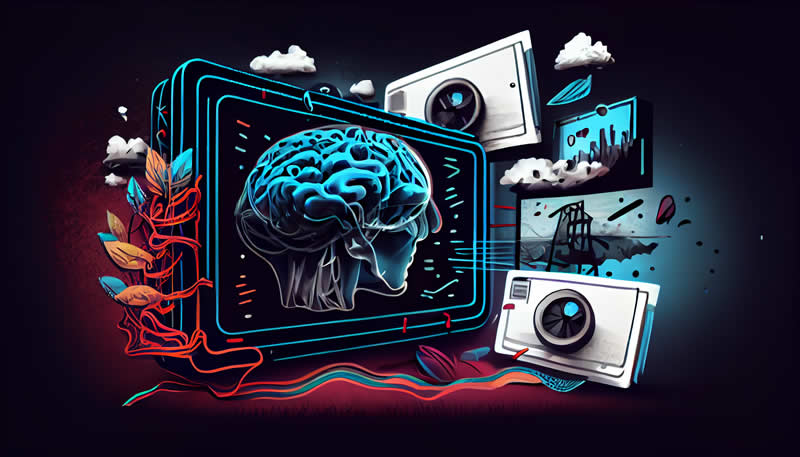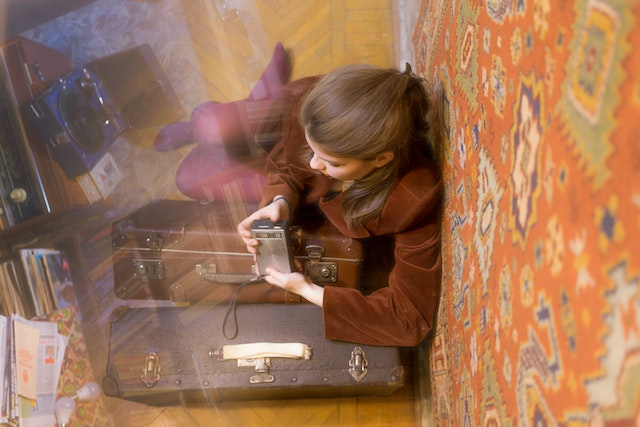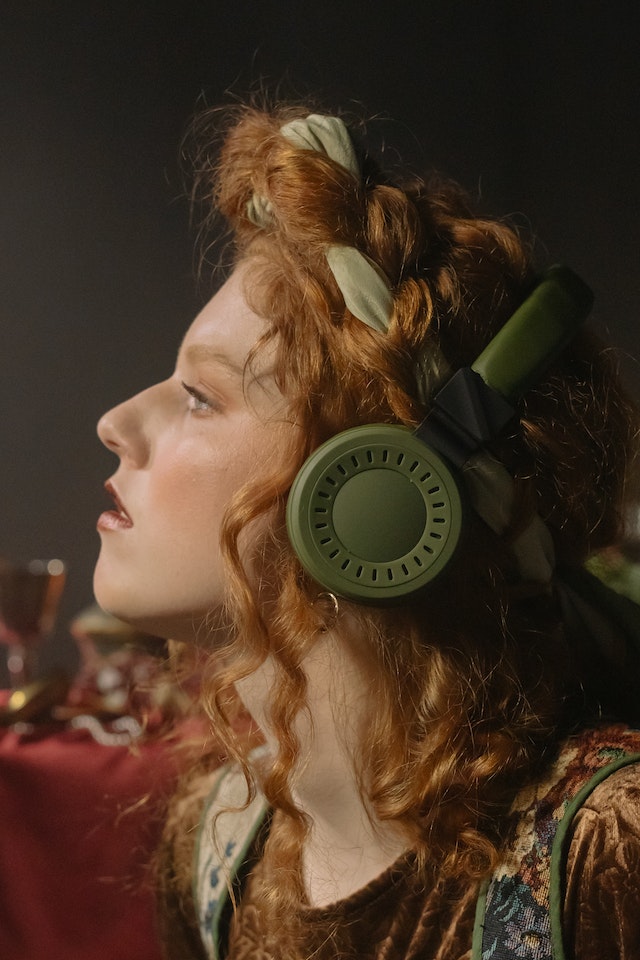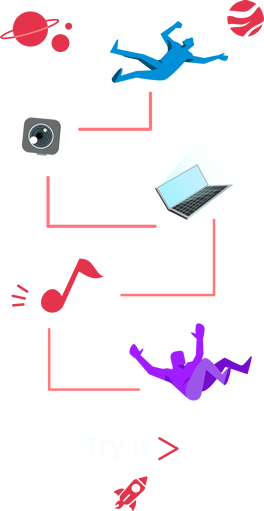The influence of music on memory and nostalgia

Table of content
The influence of music on memory and nostalgia - Introduction
Nostalgia and memory are important ideas that are intimately tied to music. More precisely, nostalgia is a sentimental desire or wistful regard for the past, whereas memory is the capacity to recollect previous events, experiences, and facts.
Music is a potent means of communication and self-expression because it has the capacity to bring back memories and arouse emotions tied to the past.
The central claim of this post is that music has a significant influence on nostalgia and memory and may be utilized therapeutically to enhance mental health and wellbeing.

We may use music's ability to evoke memories and a sense of nostalgia to better connect with people, express ourselves, and live better lives.

There is no doubting the ability of music to arouse feelings, recollections, and nostalgia, regardless of whether you are a musician, a music fan, or someone who simply loves listening to music.
Thus, take a seat, unwind, and allow the power of music to transport you to your past and present while establishing connections between you and others that you never imagined were possible.
Music and memory
Understanding the connection between music and memory can be helpful for people wishing to enhance their cognitive abilities or utilize music as a therapeutic aid. Music has the capacity to affect memory in numerous ways.

Memory is the capacity to retain and retrieve data. Sensory memory, short-term memory, and long-term memory are the three primary categories of memory.
The first stage of memory is called sensory memory, and it includes the temporary retention of sensory data.

Long-term memory is the stage of memory where information is stored for an extended period of time.
Many brain regions, including those involved in language, emotion, and memory processing, have been found to be activated by music. Memory performance can be enhanced by the stimulation of these parts of the brain.
Particularly for memories connected to past experiences or events, music can serve as a cue or trigger.
As memories are transferred from short-term to long-term memory, consolidation, which is aided by music, can occur more effectively.
Research has demonstrated that some musical genres can enhance memory more than other ones. Baroque music in particular, has been shown in studies to strengthen memory and promote cognitive function.

This is because the music has a structured beat with a constant, dependable rhythm that helps increase focus and concentration.
Music and nostalgia
Music has the power to arouse a nostalgic yearning for a past era known as nostalgia.
Those who want to use music to communicate with people or provoke emotions might benefit from understanding the connection between music and nostalgia.
Nostalgia is a yearning for a bygone era or location that is both bittersweet and frequently accompanied by pleasant feelings or recollections. It is a typical human feeling that can be brought on by a variety of stimuli, such as music.
Music has a special power to bring back memories and feelings connected to former events, people, or locations.

When a certain song or musical style is connected to a particular memory, it might arouse nostalgic sentiments, producing a strong emotional experience.
Music has a big impact on fostering nostalgia by serving as a reminder of past experiences.
There might be a strong emotional link to the past while listening to certain genres of music that are strongly associated with a certain period of time or event in someone's life.
Music also has the ability to evoke sentiments of comfort and familiarity, which can help with nostalgia.
It has been demonstrated that certain musical genres are particularly good at conjuring up nostalgic sentiments.


Music as a therapeutic tool for memory and nostalgia
Music has been acknowledged as a potent therapeutic therapy for persons who are dealing with memory loss or issues related to such emotions.
According to a research, listening to music can improve mood and cognitive function, as well as memory and nostalgia.



Music therapy helps people choose music that has special importance to them in addition to using it to foster social connection, emotional expression, and memory recall.
Case studies have shown that music therapy can enhance memory and lessen the negative symptoms of dementia and Alzheimer's illnesses that are related to nostalgia.


Overall, the therapeutic use of music for memory and nostalgia has shown great promise in improving cognitive performance, boosting emotional well-being, and raising the overall quality of life for those suffering from memory loss or issues related to nostalgia.
The influence of music on memory and nostalgia — Conclusion
In conclusion, music affects memory and nostalgia significantly and has been proven to be a potent therapeutic aid for those who are dealing with memory loss or disorders associated with nostalgia.

The results of this study have far-reaching consequences and imply that music, particularly for people who are dealing with memory loss or disorders associated with nostalgia, can significantly improve wellbeing and quality of life.

As we gain more knowledge on how music affects memory and nostalgia, we will be better able to harness its potential to improve people's lives in terms of happiness, health, and fulfillment.
Please visit our blog section to read more articles related to this subject if you share our belief in the healing power of music.
Thanks for reading,
CalypsoRoom Team
Frequently Asked Questions
Can music help improve memory recall?
Yes,100%. It has been proven that music helps people remember things better, especially when the music has special importance to them.
What types of music are best for evoking nostalgia?
Music from a person's formative years, usually between the ages of 10 and 30, can frequently trigger nostalgia.
Can music therapy help individuals with memory loss?
Absolutely, research has shown that music therapy is useful in enhancing memory and minimizing the side effects of diseases like Alzheimer's and dementia that are connected to memory loss.
How does music therapy work?
Music therapy promotes social interaction, emotional expression, and memory recall through the use of music, all of which have been demonstrated to improve cognitive function.
Is it necessary for the music to be familiar to the individual for music therapy to be effective?
No, it's not a must for music therapy to be successful for the patient to be familiar with the music. In order to help people recollect memories and express their emotions, music therapists might work with them to choose music that has special meaning for them.
How can I use music to enhance my memory and evoke nostalgia?
When studying or working on a memory-related task, listen to music that is relevant to you personally can help to stimulate your memory. Listening to music from your formative years or music that has special meaning to you can definitely generate nostalgia.
back
Written by CalypsoRoom Editorial Team
The CalypsoRoom Editorial Team is a skilled and diverse group of writers, researchers, and industry specialists who have access to Calypso's data and information in order to give you broad knowledge about the music industry as well as helpful advice to help you manage your music and dancing career.
Updated March 2023
Company number: 681223
James's Walk 31, Dublin, Ireland
contact@calypsoroom.com
+353 (89) 435 8928




